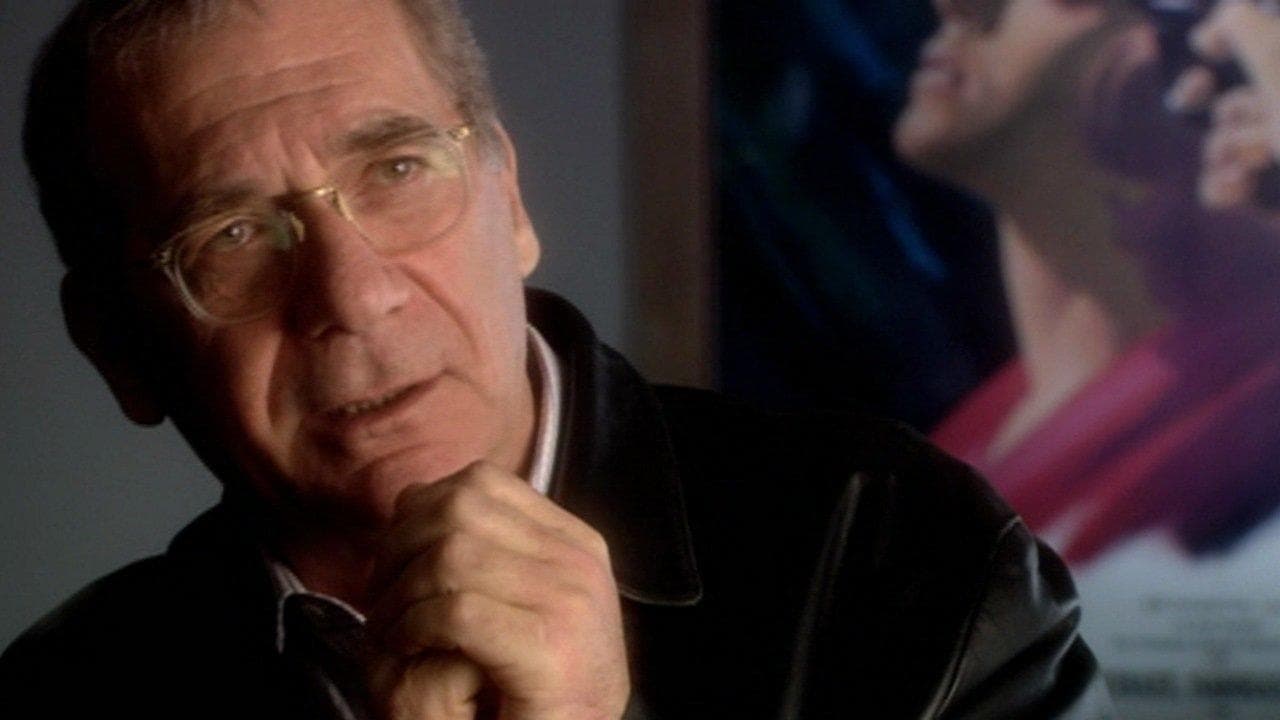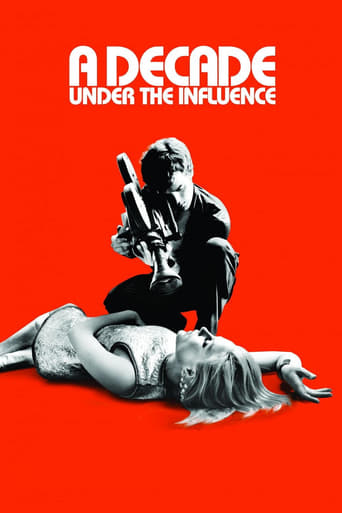

SERIOUSLY. This is what the crap Hollywood still puts out?
... View MorePeople are voting emotionally.
... View MoreIt is a performances centric movie
... View MoreA lot of perfectly good film show their cards early, establish a unique premise and let the audience explore a topic at a leisurely pace, without much in terms of surprise. this film is not one of those films.
... View MoreWhat a wonderful documentary - I sat down thinking this would be a rehash of the bitchy stories told in Easy Riders, Raging Bulls, but it is, in fact, a clear-eyed, glorious celebration of a strange and twisted era that spawned some truly great movies. What struck me was the lack of bitterness apparent in the director interviews, given that now the movie business sucks in a large fashion - instead, folk like Friedkin and Coppola's eyes seem to positively glitter recalling their glory days. The footage of an audience coming out of a daytime screening of the Exorcist was priceless. 'It was - traumatic,' one guy says. A great epitaph for the late Ted Demme, a thrilling film, I just wish it was longer - I could have sat through a three hour cut of this.
... View MoreWhen an artist, particularly a popular artist creates a work, it is not a matter of them creating something which we can then encounter or not. There is a constant collaboration back and forth, a synthesis of preconceptual stuff that is exchanged. The artist creates tentative forms that will be received by us and affect us, and to do that he has to enlist our help as cocreator.It is a complex business and the rules are always changing. No one fully understands what is going on, so usually intuition is what everyone relies on. Movies are more complex than other art forms, and they are younger by a far stretch. No decent film theorist has yet emerged.Even with the high cost of production, there is so much money in the game that there is lots of room for trial and error. And that's how things happen.How quickly we forget that all of our celebrated filmmakers, especially those featured here, had some really, really big failures. And until these dogs were sent out, they thought they were as terrific as the things that we now endorse.The point is that when it comes to explaining things, these might be the very last people to ask, and whose answers may be the least trustworthy.Yes, it probably helps to know what Scorsese now thinks was in his mind when he did something thirty years ago. And it is useful to know some of the factual history about funding and who introduced whom.But none of that gets us closer to understanding film in the 70s. No one knows what the stock market is doing, but everyone seems to have a plausible explanation afterward. I know that Hopper and Schrader have more interesting opinions than expressed here I've heard them. Those opinions are of the type I credit and have to do with constructed reality. But none of that will be found in this high school level discussion.Look, these are professional storytellers. They've been explaining themselves all their lives, so they've constructed plausible stories about what happened and why. You can't see it here, but if you dig deeper into individual views, you'll find that each person's vision of the real world corresponds to that of the constructed worlds they create.Scorsese believes the whole world is spun by personality. Schrader believes that drug-addled artists can stumble upon an accidental creation if their passion is great enough. Hopper's world is one in which a noir fate simply lays accidents of insight here and there, and so on.Demme was the wrong man to ask these questions. Of major American filmmakers, only one has exhibited his independence from the internal/external trap: Woody Allen. When he does something like this, we should all listen. Meanwhile, stuff like this only confuses history and understanding.Ted's Evaluation -- 1 of 3: You can find something better to do with this part of your life.
... View MoreAs I am a teenager, I have about one hundred years of movies to catch up on. I try to see a mixture of classics, mainstream, art-house, and other movies. The 70's is one of the most important decades for films: it's when the average, common, classical films changed into full of messages and anti-social behavior. It became like nothing anyone had ever seen before. What A Decade Under the Influence basically shows is how important all of the movies from around The Graduate to about Star Wars.Richard LaGravenese and the late Ted Demme are the primary interviewers in this documentary, which interviews such people as Dennis Hopper, Francis Ford Coppola, Martin Scorsese, Robert Altman, and Jon Voight, among others about how those few years changed cinema forever. It's a very professional, polished documentary, and it's even financed by IFC films. However, as this is a very professional one, I would think that they would at least edit out the noise of someone behind the camera laughing. To me, that took out a lot of how neat and clean the whole thing was.On the other hand, it's a very interesting documentary, about film by the people who make it. Of course, they aren't bashing their own films or anything of the like, but they're portraying honesty on what they thought of the films and what they meant. I don't know much about film (but I want to be involved around it when I become an adult), so I feel like to someone like me this movie is a huge asset. I have seen a good number of movies that they mentioned, like Chinatown and One Flew Over the Cuckoo's Nest, but a little more insight into those movies were very informative.The main reason, however, I didn't love Influence is, as slickly as it was edited, it seemed to take its time in the beginning and be quite relaxed, therefore not having enough time to get to everything that they wanted to show. They crammed in Star Wars and Jaws in the last few minutes, when they were two of the most important. It seemed like they tried too hard to show lots of clips, and that's fine, but some of them were unimportant, such as an extended one from Network.Overall, though, Influence is a very enthralling, informative documentary that helped me, at least, learn more about a second `golden age' in American cinema.My rating: 7/10Rated R for language, and images of sexuality, violence and drug use.
... View MoreA DECADE UNDER THE INFLUENCE (2003) **** (Featuring interviews with: Robert Altman, Peter Bogdanovich, Marshall Brickman, Ellen Burstyn, John Calley, Julie Christie, Francis Ford Coppola, Roger Corman, Bruce Dern, Milos Forman, William Friedkin, Pam Grier, Dennis Hopper, Sidney Lumet, Paul Mazursky, Mike Medavoy, Polly Platt, Sydney Pollack, Jerry Schatzberg, Roy Scheider, Martin Scorsese, Robert Towne, Jon Voight) Excellent documentary about the last true Golden Age of Cinema: The '70s with interviews of those who made seminal films intercut with footage of the movies providing an interesting time-line of how the influences of previous filmmakers changed the face of filmmaking, the advent of the auteur, the dawning of the age of the blockbuster and the amazing array of unbridled, raw talent of actors providing a bumper crop of truly classic films. A must for all film buffs and those who are on the way to becoming a new age of cinema. Directed by Richard La Gravenese and Ted Demme (who passed away prior to its completion; this his fitting swan song to the art form).
... View More